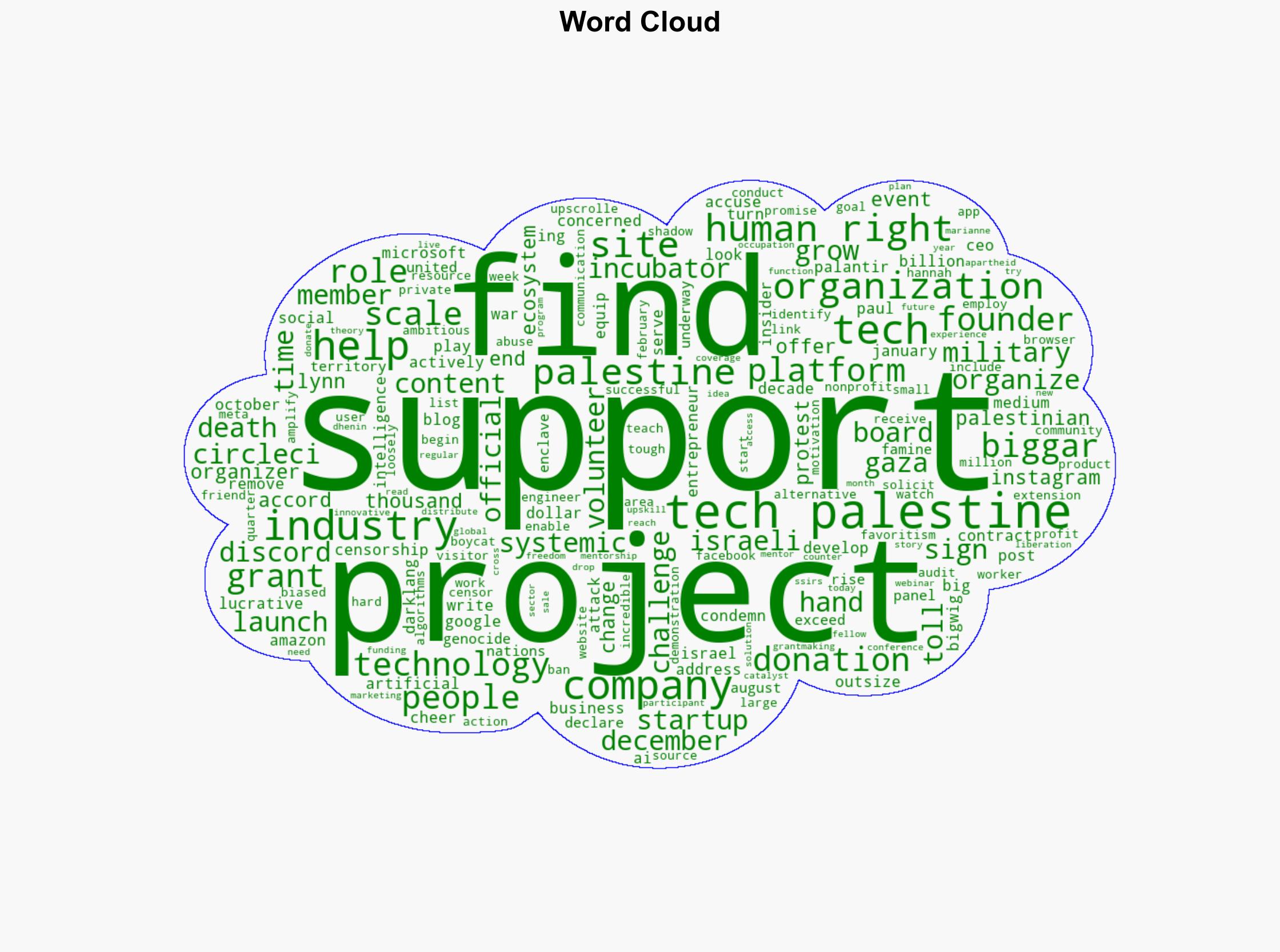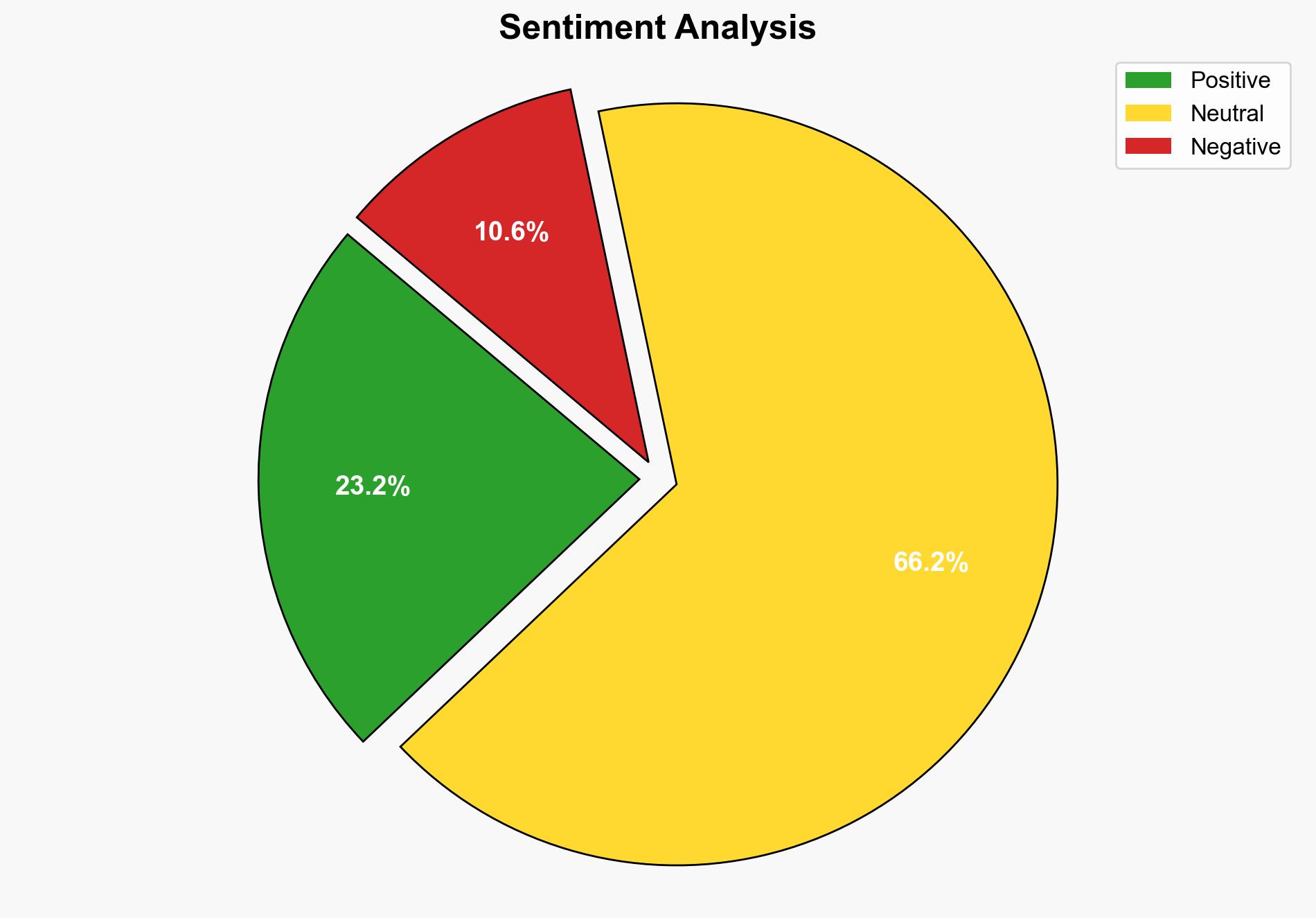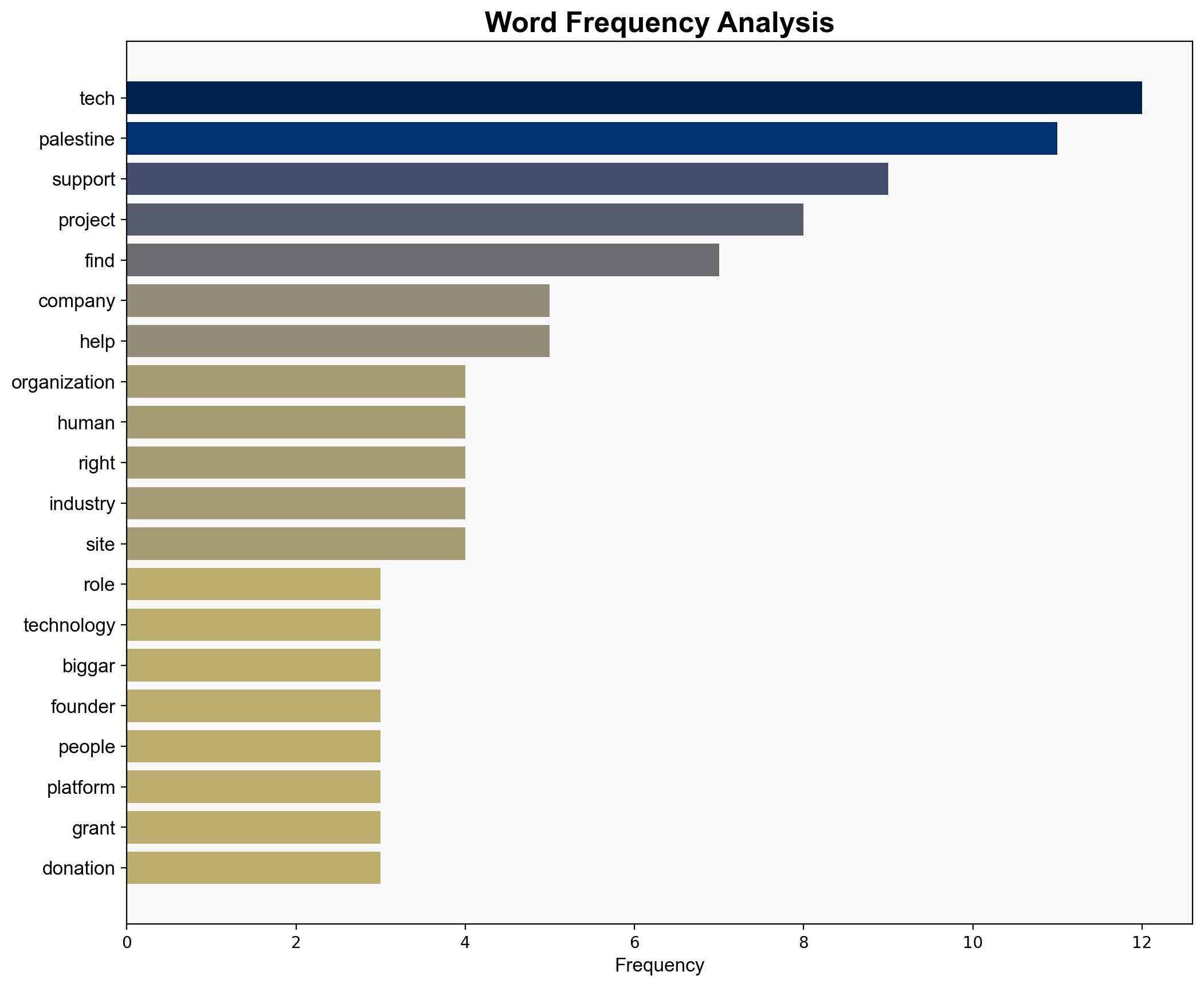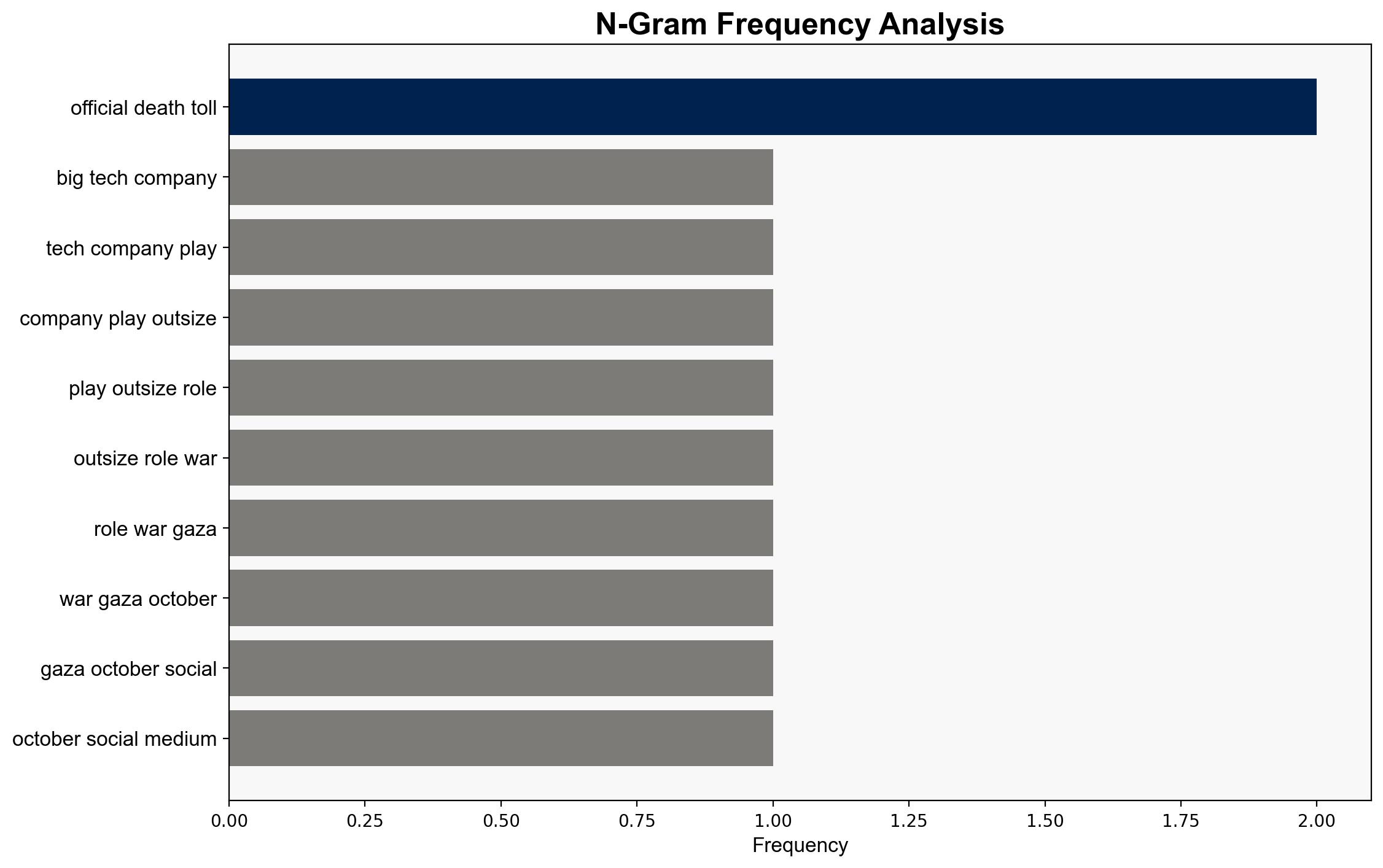Technology Against Genocide – Ssir.org
Published on: 2025-09-29
Intelligence Report: Technology Against Genocide – Ssir.org
1. BLUF (Bottom Line Up Front)
The analysis suggests two competing hypotheses regarding the role of technology companies in the Israeli-Palestinian conflict. The hypothesis that technology companies are actively supporting Israeli military efforts through systemic censorship and AI contracts is better supported by the evidence. However, there is a moderate confidence level due to potential biases and missing data. It is recommended to increase transparency and accountability in tech company operations related to conflict zones.
2. Competing Hypotheses
1. **Hypothesis A**: Technology companies are complicit in supporting Israeli military operations against Palestinians through systemic censorship and lucrative AI contracts.
– **Supporting Evidence**: Accusations of censorship of pro-Palestinian content on social media platforms; contracts between tech companies and the Israeli military.
2. **Hypothesis B**: Technology companies are neutral actors, and any perceived bias is a result of algorithmic errors or external pressures.
– **Supporting Evidence**: Initiatives like Tech Palestine, which aim to support Palestinian entrepreneurs and human rights, suggest a counter-narrative of tech companies fostering positive change.
3. Key Assumptions and Red Flags
– **Assumptions**:
– Hypothesis A assumes intentional bias and complicity by tech companies.
– Hypothesis B assumes that tech companies are capable of maintaining neutrality in complex geopolitical conflicts.
– **Red Flags**:
– Lack of transparency in tech company operations and decision-making processes.
– Potential cognitive bias in interpreting actions as either supportive or neutral.
– Missing data on internal policies and external pressures influencing tech companies.
4. Implications and Strategic Risks
– **Patterns**: Increasing scrutiny on tech companies’ roles in geopolitical conflicts could lead to reputational damage and regulatory challenges.
– **Cascading Threats**: Potential for increased cyberattacks and misinformation campaigns targeting tech companies.
– **Geopolitical Risks**: Escalation of tensions in the region could lead to broader international conflict, impacting global tech operations.
5. Recommendations and Outlook
- Enhance transparency in tech company operations related to conflict zones to build trust and accountability.
- Develop robust frameworks for content moderation that consider geopolitical sensitivities.
- Scenario Projections:
- Best Case: Tech companies implement transparent policies, reducing accusations of bias.
- Worst Case: Continued perception of bias leads to regulatory crackdowns and loss of consumer trust.
- Most Likely: Incremental improvements in transparency and moderation practices, with ongoing scrutiny.
6. Key Individuals and Entities
– Paul Biggar: Founder of Darklang and CircleCI, involved in Tech Palestine.
– Tech Companies: Microsoft, Google, Amazon, Palantir.
– Tech Palestine: Organization supporting Palestinian entrepreneurs and human rights.
7. Thematic Tags
national security threats, cybersecurity, counter-terrorism, regional focus





